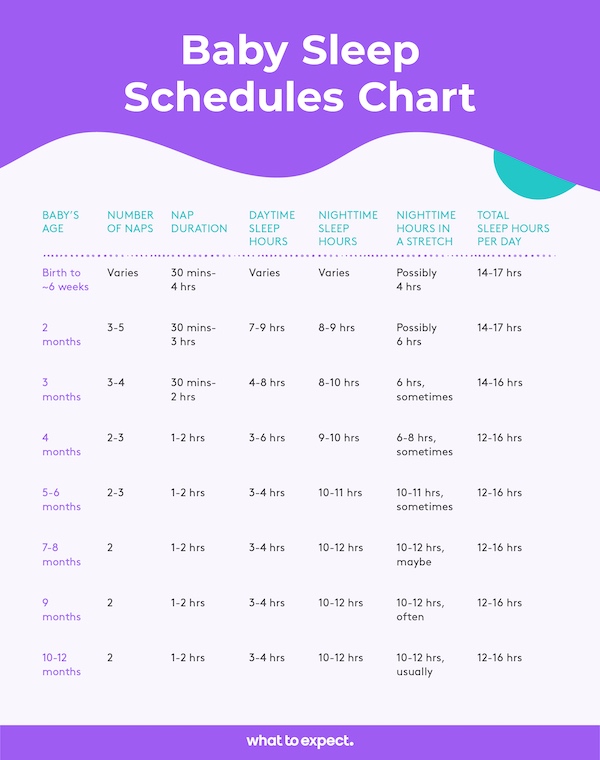Are you concerned that your baby is only napping for short periods? You may be now wondering if it’s a normal thing or how to extend your little one’s short naps. Here are the best solutions if your baby won’t nap for more than 30 minutes!

Baby naps: we all love them. Baby needs them, parents need them, everybody is happier when baby gets a good nap in.
So, what do you do if baby takes only short naps? For reference, a short nap is around a 30 minute nap (or less).
“Cat napping”, when baby only naps for short periods, frequently, can be a vicious cycle, and can lead to mom feeling exhausted and both you and baby feeling grumpy.
If your baby wakes up after only 30 minutes into naptime regularly, you know what I’m talking about. It can be exhausting physically and mentally, your baby is likely cranky (which, let’s be honest, makes Mama cranky, too).
Several days of short naps can make it difficult to do even the most minor task or run errands: you want baby to sleep – you need your baby to nap longer, and they need it too!
If you’re facing nap struggles, are looking into sleep training, or have every wondered “how do I get my baby to nap longer than 30 minutes?” then buckle up Mama – this article is for you.
I’m going to get into all things baby naps: baby sleep cycles, the appropriate nap times by baby’s age, learning how to fall asleep (and stay asleep!), setting up a nap routine and tips for how to help your baby nap longer.
This article is not a substitute for medical advice or consultation.
Understanding Sleep Cycles
Newborn babies’ sleep is not like adult sleep, here’s why: adults have four or more sleep cycles with our nighttime sleep. Babies have only two sleep cycles, and each lasts only 20-40 minutes.
If your baby regularly has short, 30 minute nap times, then it’s a good guess she is waking after a single sleep cycle. What you want to do is help baby put herself back to sleep, or into the next sleep cycle without fully waking.
Helping Baby Fall Asleep
Typically, babies don’t have such a hard time falling asleep as they do staying asleep. What you want to do then, is put baby awake to bed, not already sleeping.
Your baby should be drowsy, but slightly awake when you put them lying flat in their crib or bassinet. This way, they are falling asleep independently and are more likely to be able to transition to a new sleep cycle independently.
It won’t happen immediately, it takes some days – even weeks to learn this skill, so be patient.
More About Baby’s Sleep Cycles
While adults have REM sleep and deep sleep, babies have active sleep and quiet sleep.
We are usually familiar with quiet sleep, when a baby sleeps peacefully. Active sleep, on the other hand, is when a baby grunts, moves and may appear restless. These are both normal sleep patterns in young babies.
If your baby wakes up during the active sleep cycle, wrapping them in a swaddle might help reduce big movements that wake them.
Don’t rush in if you hear your baby stirring or see movement on the baby monitor, this might just be active sleep.

A Sleep Guide: Appropriate Daytime Sleep By Age
Make sure you are setting realistic expectation’s for your baby’s nap time1.
Newborn – 2 Months
Newborn sleep is very important, but short naps are actually normal for babies under 2 months old.
30 – 45 minutes is an appropriate nap for newborn babies, who need to nurse every few hours. You cannot expect to get baby to nap for long stretches when they are only 1 month old.
Some newborns can sleep longer – even up to 4 hours at a time. However, if baby is sleeping longer than 3 hrs (under 3 months of age) you may need to wake them in order to feed.
Most babies will take frequent naps during the first weeks of life, your focus should be on regularly feeding time over longer naps.
What’s noteworthy, at this stage your little one may be getting through 6 week sleep regression (which is the first of many sleep regressions actually). This means shorter nap time, waking up frequently at night and increased fussiness.
2 – 3 Months
Nap time: 30 min – 3 hrs
Number of naps: 3-5 naps/day
Overnight sleep stretches: 4-6 hrs
As you can see, short baby naps are still completely normal at this age.
It’s important to develop night sleep first, and get in those longer strethces for overnights before trying to get baby to take longer naps during the day.
One way to help babies sleep longer at night is to do scheduled night feeds with the lights off, instead of waiting for when baby wakes crying because he is hungry.
3 – 4 Months
Nap times: 1- 2 hrs long
Number of naps: 2-3 naps/day
Overnight sleep stretches: 5 + hrs
After 3 months old, try to create a sleep routine with your baby; schedule morning naps, wake windows, and develop a healthy sleep schedule to help your baby get a longer nap.
Remember: overnight sleep should still be the priority at this age.
5 – 6 Months
Nap Time: 1-2 hrs long
Number of Naps: 2-3 naps/day
Overnight sleep stretches: 6-8 hrs
Finally! at around 5 or 6 months, you can start expecting a long nap from your little one on a regular basis AND longer stretches of overnight sleep (that’s because they’re consuming loads of milk and can stay full for longer).
There is usually month sleep regression around this age, as baby learns new skills and you have the nap transition from 3 naps a day down to 2 longer naps: you may experience some hiccups and a few of baby’s short naps in this period, this is common.
7 – 9 Months
Nap time: 1 – 3 hrs
Number of naps: 2 naps/day
Overnight sleep stretches: 10-12 hrs
At this age, it was that first nap of the day that I really wanted to be a long nap.
The wake window between the first nap and last nap of the day was crucial for my baby to have good overnight sleep. I would plan my day around that early-day awake window: go to the park, have a play date, run errands. If the second nap of the day was only 45 minutes, I would just keep baby awake and push bedtime earlier to balance it out.
9 – 12 Months
Nap times: 1- 3 hrs
Number of naps: 1 – 2 naps/day
Overnight sleep stretches: 10- 12 hrs
By this age, most babies have two naps a day, an it’s really up to you how long they are and the wake window in between. Our sweet spot was a single, 2hr late morning nap and then an early bedtime.
However, if baby wakes early, or goes to daycare, you could do two naps in a day, so he isn’t overtired at the end of the day.
The focus here should be getting 12- 14 hours of total sleep a day. If you want your baby to sleep 12 hrs straight at night, you may need to compromise with a shorter daytime nap.
Short Naps: Is My Baby Okay?
If your baby takes short naps during the day, you may be wondering if they are okay, or if you as a parent are doing something wrong.
Please know that lots of parents struggle with daytime naps and that each baby is unique. Naptime struggles don’t mean that something is wrong, some babies are naturally better sleepers than others, while other babies need a very quiet room and pacifier in order to take longer naps.
Baby’s Age
Babies less than 6 months old may not be able to put themselves back to sleep after an interruptions in their sleep cycle transition (from one sleep cycle to another).
It is appropriate for breastfeeding newborns to take shorter naps, don’t be surprised if your little one has several naps that last only 45-minutes.
Why Does My Baby Wake Up After 30 Minutes Every Nap?
Here are the main reasons why you baby may not be able to nap for more than 30 minutes2:
Overtired Baby
This may sound silly, but it’s true: one of the main reasons babies take short naps is often because they are overtired.
Is this you: your baby will be very tired, then she’ll fall asleep – but wake up after just half an hour? You thought that because she was tired she would stay asleep, right? But the issue is she is overtired when she falls asleep.
Other Reasons For Short Naps
- Your baby is under 4 months old: younger babies take shorter naps, this is normal.
- Baby is developing and reaching new milestones.
- Baby has not yet learned how to fall asleep independently.
- Ready for a nap transition (changing daytime sleep to fewer naps a day, for example: transition from 4 to 3 naps, or transition from 3 to 2 naps).
- Teething or having a blocked nose due to a cold.
How Do I Stop My Baby Waking Up After 30 Minutes? – Best Ways To Extend Short Naps
Here are the best ideas how to extend your little one’s nap time3:
1. Put your baby to sleep awake
Yes, your baby should be drowsy, but slightly awake when you put them lying flat in their crib or bassinet.
2. Don’t rush in at the littlest noise
If they are making sounds, talking to themselves, but not crying, it’s safe to keep to “crib hour” and keep them in the crib longer.
3. Keep baby’s sleep environment dark
Don’t turn on the lights. Blackout nursery blinds may be helpful too.
4. Don’t lift them out of the crib if baby wakes
Even if baby starts to cry a bit mid-nap, don’t take pick them up. Instead help your little one to fall asleep again – rub their back, rock the bassinet gently, offer a pacifier4.
5. Don’t talk to your baby
Your voice will wake them, better stay silent and let the sound machine do its magic.

More Sleep Tips To Help Baby Nap Longer Than 30 Minutes:
- Use a white noise machine to help muffle sounds.
- Put up blackout curtains in your baby’s nursery. A dark room results in better sleep.
- 68-72°F is the ideal sleep environment temperature for babies. Try to keep your nursery at this temperature.
- Swaddle your little one to avoid them waking up during “active sleep” or for older babies use sleep sacks (in both cases, do not use weighted sleeping sacks or swaddled).
- Change up baby’s feeding times to either immediately after a nap, or just before a nap and see what works for you.
- Get outside! Getting natural sunlight is good for babies during their wake windows, and will help them nap better, later
- During awake time, be active: do tummy time, play pee-a-boo or practice feeling new textures.
- “Wind down” after an activity as you transition to nap time, do a massage to help baby relax, or push your little one around the yard in the stroller after tummy time to help your baby get drowsy.
Remember: overnight sleep is the priority. Even if your baby has a short nap in the day, they might sleep for 8+ hrs overnight – and that’s still a win!
How To Get Baby To Nap Longer – FAQ
I know that as new mom or dad you may be concerned that your baby is only taking short naps. Here are more tips for preventing waking up after 30 minutes, as well as final answer – are short naps ENOUGH?
Should I Encourage My Baby To Nap Longer?
Yes, you should encourage your baby to nap longer – experts agree that baby sleep is crucial for cognitive development in babies5. You’ll probably enjoy a bit of time to yourself, too, if baby naps longer.
Newborns will take short naps, and that’s to be expected. Hopefully, as your child reaches 6 months old, you both can enjoy some long naps.
How Can I Make Sure My Baby Sleeps Well During Naps?
Make sure baby’s room in dark enough to encourage sleep, and muffle sounds with a white noise machine.
Can Babies Only Nap For 30 Minutes?
A 30 min nap for a newborn is okay. However if baby only naps for 30 minutes at 4 months old, this would not be enough sleep. You should aim for your baby to nap longer than 30 minutes (at least an hour) by this age.
Is 30 Minute Nap Enough For Babies?
A short nap for newborn babies is acceptable, because they have to feed so frequently.
However, at 4 months old – for everyone’s sanity – it’s a good idea to get your baby on a nap schedule, with a morning nap and two afternoon naps a day.
By this age, baby should be napping for at least an hour on a regular basis (if the odd day its a short nap, just roll with it).
When Do Baby’s Naps Get Longer?
At around 4 months old, you can expect your baby to be taking long naps and to have established a bedtime routine where your baby will sleep for longer overnight stretches (which means more sleep for you, too! how wonderful).
| By the way, are you wondering when it’s the best time to move your baby from bassinet to crib? Find out when your infant is ready for the transition out of bassinet and how to make it easier. During the transition you should keep baby’s sleep schedule! |
Will My Baby Grow Out Of Short Naps?
Yes. If you’re a mom feeling frustrated and exhausted, have hope – eventually your baby will nap longer than 30 minutes. It takes time, and using some of my sleep tips and your baby to grow up a little, but both you and your baby will figure out this napping thing together.
The purpose of this article is informative. It’s not a substitute for professional medical advice or medical care. Remember: safety first! Consult your doctor/pediatrician in case of any doubts. The author of this article does not accept any responsibility for any liability, loss or risk, personal or otherwise, incurred as a consequence, directly or indirectly, from any information or advice contained here.
Resources:
https://www.babycentre.co.uk/
https://huckleberrycare.com/
https://themummybubble.co.uk/
https://www.babysleepmadesimple.com/
https://sleepingshouldbeeasy.com/
Sleep chart belongs to: https://www.whattoexpect.com/


